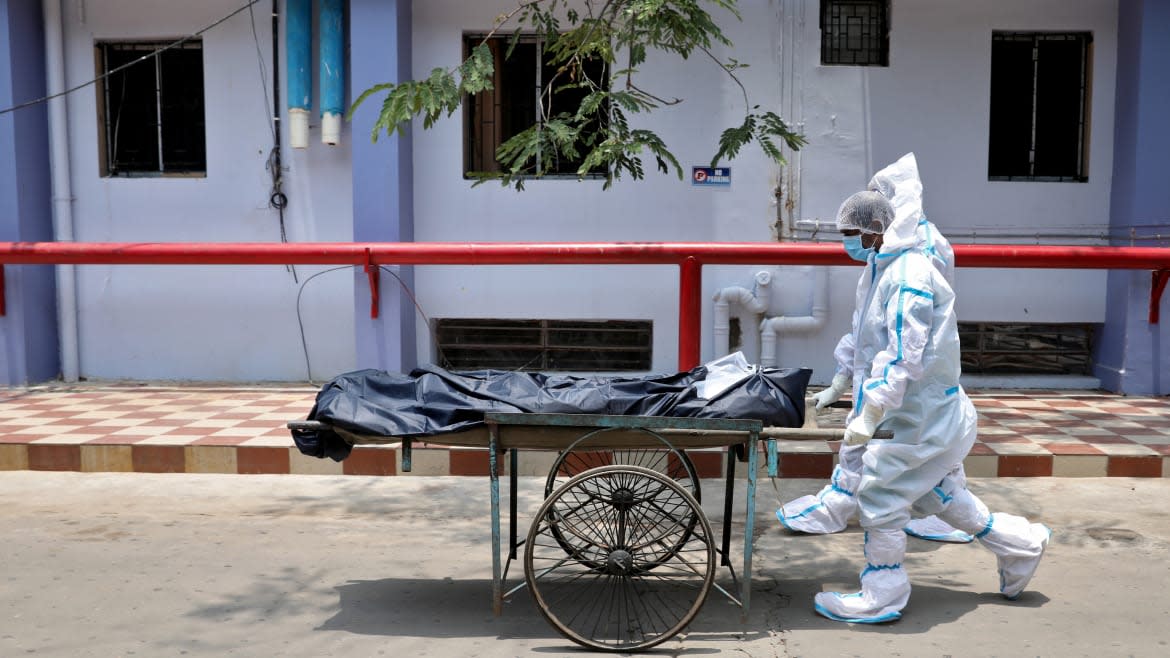Clusters of ‘Black Fungus’ Infections Are Now Ravaging India’s COVID Survivors

A surge in black fungus infections in what could be thousands of recovered COVID-19 patients in India has added a new layer of misery to an already chaotic situation. The invasive infection, officially known as mucormycosis, is transmitted when people inhale fungal spores that then get lodged in the sinuses. The disease caused by the spores would not normally be dangerous, but in recovering coronavirus patients who have been on steroids, it becomes life-threatening.
“For most part, if you have a normal immune system, it’s an asymptomatic, silent encounter,” Tobias Hohl, chief of infectious-disease service at New York’s Memorial Sloan Kettering Cancer Center, told National Geographic. “Unless treated, the infection can cross into the central nervous system, and that’s more dangerous.” He added that mortality reaches upward of 50 percent if the fungus reaches the brain.
Those who require hospitalization often suffer from compromising existing health situations, including diabetes, which is highly prevalent in India. The symptoms of black fungus include back lesions, swollen eyes, and severe headaches in addition to bleeding nasal discharge.
In the city of Gurugram, outside New Dehli, doctors have identified more than 40 black fungus cases among those who had recovered from COVID-19, adding new pressure to a situation already on the breaking point. The entire state of Haryana has reported more than 200 cases and officials are concerned that the black fungus infections are under-reported elsewhere out of an inability to monitor recovered patients. Medical experts believe there are thousands of black fungus cases across the country.
Many patients exhibiting symptoms have used high doses of steroids to treat COVID-19 symptoms—a treatment not yet proven to be successful. Some medical professional in rural areas have then continued steroid treatment, not knowing what the black fungus infection is, which then gravely contributes to the complications from the infection, Amitabh Malik, head of ENT at Paras Hospital, told the Times of India.
Instead, the recommended procedure for black fungus is surgical removal of infected tissues—a near impossibility given the overcrowded state of India’s hospitals. Medications used to treat it non-surgically are not available in the country, he said.
While India’s official rate of infection has slowed slightly in the last few days, with the daily number of new cases in the lower 300,000 as opposed to more than a week of numbers topping 400,000, the country is still overwhelmed with people seeking medical attention.
Get our top stories in your inbox every day. Sign up now!
Daily Beast Membership: Beast Inside goes deeper on the stories that matter to you. Learn more.

